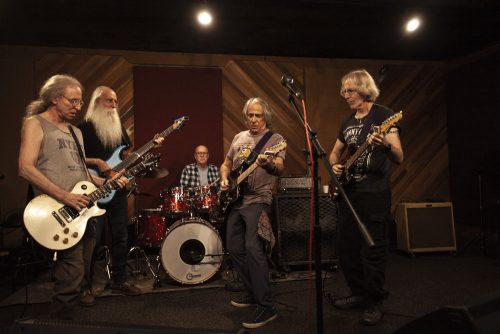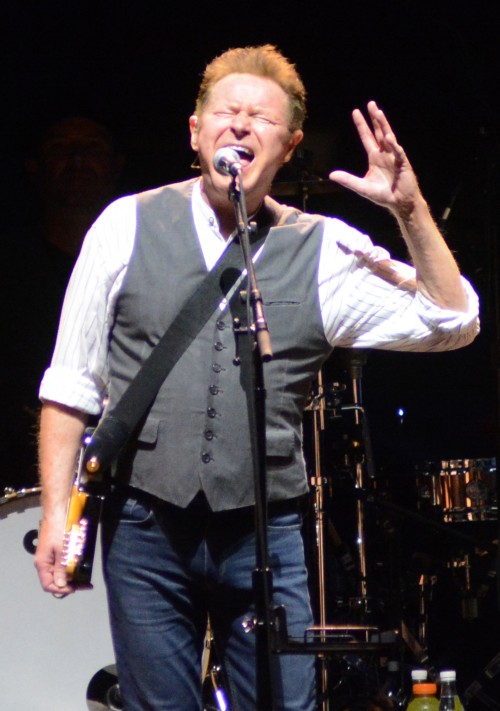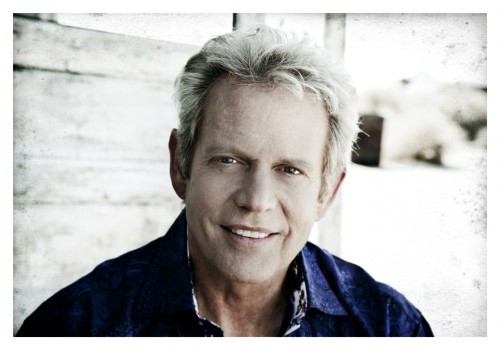If you’re a casual music fan, you probably never heard of Danny Kortchmar, Waddy Wachtel, Leland Sklar and Russ Kunkel. But if you’ve listened to the radio in the past 40 years, you’ve certainly heard them perform. A lot. Songs like Don Henley’s “All She Wants to Do is Dance,” Jackson Browne’s “Somebody’s Baby” and Warren Zevon’s “Werewolves of London” wouldn’t exist without these guys.
They’ve been performing together recently as The Immediate Family, having recorded Kortchmar’s 2015 album, “Honey Don’t Leave LA,” and they’re working on the follow-up. They’re also touring the East Coast, with a residency at the Iridium running from tonight through Sunday.
Kortchmar (guitar and vocals), Wachtel (guitar and vocals), Sklar (bass) and Kunkel (drums) — three-fourths of a crew that was known as The Section — are joined in The Immediate Family by Steve Postell (guitar and vocals), who’s worked with stars like David Crosby and John Oates and is a veteran of Broadway pit bands.
We recently chatted with Kortchmar, Wachtel and Postell about their many musical accomplishments and some of the stories behind the songs.
Danny, you recorded, wrote, performed and produced with Don Henley. What made that partnership so successful?
DK: It was great working with Henley because there was no recording budge [limit], no time constraints, so we could take our time to do everything. We had tremendous resources available to us. The other part of it was Henley was really hungry to prove himself as a solo artist, so we were constantly coming up with new ideas and fresh ways to do things. One of the things that he said when we started was he didn’t want it to sound at all like the Eagles. He didn’t want any acoustic guitars, he didn’t want any “ooh” background vocals, very little vocal harmonies. He was very particular about creating a new sound, so that was fun for me because I wasn’t coming from an Eagle-y background, so I felt I could bring a new kind of twist to what he was doing. We did a lot of experimentation.
What about James Taylor?
DK: We were childhood buddies. I met him when he was about 13 so we kind of came up together and taught each other a lot of stuff. We both listened to the same records, whatever we could find. We kind of grew up with the same vocabulary. In terms of playing with James, as he got better and better on acoustic guitar, he got better really fast, he developed his style very quickly. So when I started playing live gigs with him in the early ’70s, I went out to play what he didn’t play. I would go above him, I would play half of what he was playing. So that’s how I approached playing with James.
Waddy, how did you come up with the signature guitar riff in Stevie Nicks’ “Edge of Seventeen?” Did you realize it was going to be a huge hit when you recorded it?
WW: No, I didn’t know that. Stevie, she brought in a piece of music she wanted to cut, and it was based on someone using an echo on a guitar note that was generating that same kind of pattern, but when I heard it, I said, “I don’t use a lot of effects, I’m not going to use that echo, I’m just going to play it.” So I just dug in and started playing it, and we just knew it felt great. We had no idea it would become what it became. When you’re in the studio, you don’t sit there saying, “Oh my God, this is going to be a gigantic hit.” That will happen sometimes when you hear something back, but we were just so caught up in it, we didn’t really know at that point. I knew it had to have that physical sound to it rather than have that echo thing.
DK: One thing, that part is so hard to play right, seriously. To play it like Waddy plays it to this day, I do it sometimes and it’s not so simple and very few guys can pull that off.
WW: I had to bring myself into the rehearsals and get my arm in shape. To do it, it’s like a sporting event, playing that one. It’s not just pickin’ and grinnin’.
Waddy, you’ve also played on all of Keith Richards’ solo albums. Many people consider him to be a “feel” player. Do you agree with that?
WW: Definitely a lot of feel. Part of his feel is his incredible rhythmic technique, buit it’s very much based on his feel.
He’s a larger-than-life figure, everyone knows who he is. How would describe him as a person?
WW: Keith is one of the sweetest guys you’ll ever meet in life. He’s a real gentleman. At the same time, you don’t want to cross him. He’s very aware of everything around him, he’s very intelligent, buy you approach with caution.
DK: We had the great pleasure of having him backstage at the Iridium and he was such a gentleman and respectful and funny and everything you could possibly hope he would be.
Waddy, your relationship with Warren Zevon yielded some wonderful music, including “Werewolves,” which you co-wrote. But a lot has been written about him being difficult. How was your partnership with him?
WW: Precious. Strained, always. We always had an oil-and-water relationship from the beginning. We loved each other but had to handle each other with a grain of salt. We didn’t agree on a lot of things. We did agree on the Rolling Stones and Merle Haggard. Everything else was up to discussion or argument. We were incredibly musically locked in together. I could hear his songs and see how to perform his songs and put it down recording-wise and how to arrange his tunes. We loved each other dearly, but at the same time we always needed our space. Warren was a tricky bunch of dudes that way.
Steve, how would you describe your time working on Broadway?
SP: Today, because to keep Broadway alive they’re doing all these rock shows, like Carole King [“Beautiful”], the players in those pits are more rock players. But back in the day when I was doing it, the rhythm section was guys who were younger rock players and everyone else was like 120 years old who had been playing Broadway forever. They weren’t that crazy about us because it was definitely a divide, but at the time, I was young when I started to do it and it was a great gig to have. There were three [union] rules: You couldn’t be late, you couldn’t be drunk and you had to play 51% of the shows. If you did those three things you couldn’t get fired. I only did play about 51% because I had a whole other life playing rock and roll playing sessions during the day. So it was a great gig for me, and in the beginning, I also did tours, one of the early tours Ii did was with John Raitt, Bonnies’s dad, we got real close and he introduced me to Bonnie back then. It’s a very different thing. You play the exact same thing, the same notes every night. I played “Evita” for two years, and it’s muscle memory. I’m glad I don’t do it now but it was good for me musically and I got to work with conductors. To me, you play music and it all adds to your hard drive.




Leave a Reply